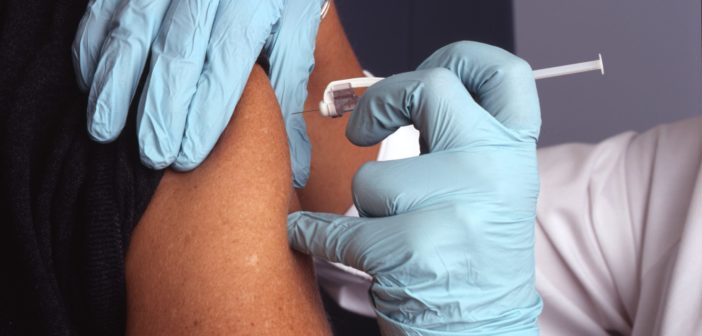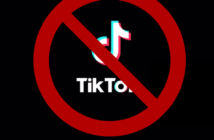By: Ryn Williams, Social Media Manager
The Centers for Disease Control and Prevention (CDC) have only authorized two vaccines for COVID-19: Moderna and Pfizer. As of Dec. 28, 2020, there are three COVID-19 vaccines currently in phase three that are not completed. They consist of AstraZeneca, Janssen, and Novavax.
Kathy Van Eerden, Ph.D., R.N., Dean of the College of Health Professions at Saint Leo University, explained how vaccines get approved.
“Development of a new vaccine has several steps. First, the trial vaccine is administered to small groups. Next it is given to people of different ages and characteristics, and finally, the vaccine is given to large groups of people to test for safety,” said Van Eerden. “During a pandemic, it’s important to complete safety studies and obtain emergency use authorization. The U.S. Food and Drug Administration (FDA) authorizes or approves new vaccines. The approval process has multiple steps including a new drug application, clinical trials, manufacturing inspections, and monitoring and tracking of side effects.”
It’s important to look at how our bodies fight infection before we look into how vaccines help. Viruses attack the body and multiply. That invasion becomes an infection, and the whole attack becomes an illness.
The human immune system uses white blood cells to fight illnesses. There are three types of white blood cells: macrophages, B-lymphocytes, and T-lymphocytes.
“Macrophages swallow and digest germs. B-lymphocytes produce antibodies that go after viral pieces left by macrophages and T-lymphocytes attack cells that were already infected,” Van Eerden explained.
When people are infected with COVID-19, their bodies can take days to weeks before they get over the infection. The T-lymphocytes record the infection and will be better suited to fight it in the future.
For those with weaker immune systems, it isn’t worth the risk of getting sick. This is why COVID-19 vaccines give the immune system a code to follow to prevent the body from getting COVID-19.
There are currently three types of vaccines for COVID-19.
The two CDC-authorized vaccines for COVID-19 are Pfizer-BioNTech and Moderna. Both vaccines are the first Messenger RNA (mRNA) vaccines. Both require two shots. Both of them are injections into your upper arm muscle. Neither contain eggs, preservatives, or latex. There are differences between the two, however[EM1] .
Pfizer, the same company that makes Chapstick, is one of the world’s largest pharmaceutical companies, and has been around for about 172 years. It worked with small German company BioNTech as soon as the COVID-19 pandemic was announced.
Moderna is only 10 years old, and still has yet to release a drug on the market. They’re sourced from Cambridge, MA, and have spent their first 10 years researching stem cells and mRNA vaccinations.
The Pfizer vaccination is available for those 16 and older; while the Moderna vaccine is for those 18 and up and is currently pioneering ages 12-17.
The Pfizer vaccine showed an efficacy of 95% of preventing symptomatic COVID-19 infection in those who haven’t had COVID-19 before. It was equally protective across age, racial, and ethnic groups.
The Moderna vaccine is 94.1% effective at preventing symptomatic COVID-19. It was slightly less effective in people 65 and older, but during a presentation to the FDA, they explained that the number could have been influenced by the fact that there were less members of that age group in the trial.
The Pfizer dosage is only 30 micrograms of vaccine, while Moderna’s dosage is over three times as much at 100 micrograms. The higher dosage doesn’t seem to make a difference in effectiveness.
“I am not sure how the difference in dose impacts the efficacy; study continues,” Van Eerden said.
Both vaccines require two shots: a priming dose and a booster shot. For Pfizer, it’s 21 days; for Moderna, it’s 28 days.
“Most COVID-19 vaccines require two shots,”. Van Eerden said. “The second shot is needed for us to develop the most protection. The frequency of booster shots continues under investigation.”
The Coronavirus Aid, Relief, and Economic Security (CARES) Act, signed into law by former President Donald Trump on March 27, 2020, says that the COVID-19 vaccine itself will be free to the public. For those who are uninsured, the federal government bought nearly 300 million doses of FDA approved COVID-19 vaccines in advance.
Congress has directed nearly $10 billion to the vaccine effort. The Department of Health and Human Services’ (HHS) website declares that “any vaccine of therapeutic doses purchased with US taxpayer dollars will be given to the American people at no cost.”
It’s unlikely that anyone receiving the vaccination will have a choice between Pfizer or Moderna – what’s available is likely whatever people will receive. Florida is currently distributing both of the vaccines.
“Overall, as a health care professional, I would advocate for everyone to choose to be vaccinated; so, it’s a question of when to get the vaccine rather than whether to receive the vaccine,” Van Eerden said.
Savannah Red, a recent Saint Leo graduate with a bachelor’s degree in psychology with a specialization in clinical psychology, had a hopeful comment.
“I’m excited about the vaccines; it means that we’re one step closer to being able to go back to our regular lifestyle! I don’t know if we’ll get to the point where we stop wearing masks in a month, but I like the idea of the number of cases falling because people are being vigilant,” said Red.
Not all students are interested in getting vaccinated. Khamille Labbe, a Saint Leo student majoring in English with a specialization in professional writing, explained.
“I do not plan on taking it because I do not have a need for it. There are other people who are sick that need it more than I do,” said Labbe. Saint Leo currently has no plans on making a COVID-19 vaccine mandatory for students.





